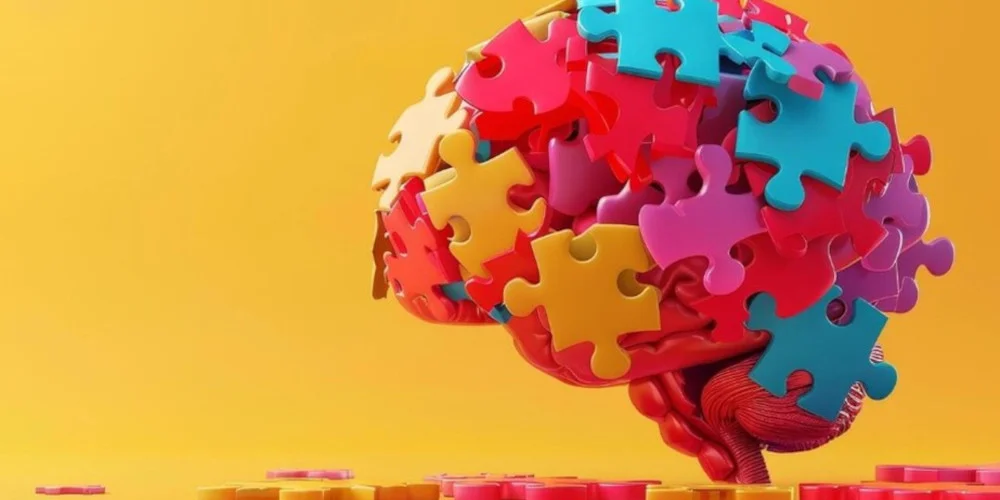When grappling with a cycle of unhealthy behaviors and emotional turmoil, it’s common to question whether these issues stem from a mental health disorder or are symptomatic of addiction. This confusion is not only daunting but also deeply frustrating, especially when trying to find a way forward.
Exploring the Overlapping Spectrum of Mental Health Disorders and Addiction
The relationship between mental health disorders and addiction is complex, often characterized by intertwined symptoms and overlapping triggers. Both conditions are influenced by a myriad of factors—biological, psychological, and social—that can blur the lines between the two, making it challenging to discern one from the other.
Understanding the Interplay of Factors:
- Biological Factors: Both mental health disorders and substance use disorders can stem from genetic predispositions and neurobiological imbalances. For instance, changes in brain chemistry related to neurotransmitters like dopamine and serotonin play a significant role in both depression and substance addiction. These biological influences can predispose individuals to both mental health challenges and addictive behaviors, complicating the diagnosis and treatment.
- Psychological Factors: Psychological distress, including unresolved trauma, chronic stress, or low self-esteem, can contribute to both mental health disorders and addiction. Conditions like PTSD, anxiety, and depression often coexist with substance use disorders because individuals may turn to drugs or alcohol as a way to self-medicate and alleviate their mental distress. Conversely, the psychological impact of addiction, which may include guilt, shame, and isolation, can exacerbate or trigger the onset of mental health disorders.
- Social Factors: Environmental and social contexts, such as family dynamics, peer influences, and socioeconomic status, also play critical roles in the development of these disorders. Social isolation, for example, can be both a cause and a consequence of depression and substance abuse, creating a feedback loop that perpetuates both conditions.

The journey of recovery from addiction is as unique as the individuals embarking on it.…

Schizophrenia Doesn’t Exist in a Vacuum Schizophrenia is often treated as an isolated medical condition,…

There’s a kind of emptiness that modern people carry, a restlessness that never really leaves.…
The Concept of Co-Occurring Disorders
When discussing co-occurring disorders, it is essential to recognize that this dual diagnosis is not merely the presence of two independent conditions; rather, it’s a dynamic and interacting spectrum where each disorder influences the progression and response to treatment of the other.
Implications of Co-Occurring Disorders:
- Amplified Symptoms: The presence of a mental health disorder can intensify the symptoms of a substance use disorder and vice versa. For example, an individual with bipolar disorder may experience heightened phases of mania or depression influenced by substance use, which in turn can lead to more erratic or dangerous consumption patterns.
- Complicated Treatment Needs: Treating co-occurring disorders requires an integrated approach that addresses both the substance use and the mental health condition simultaneously. Treatment strategies that focus on only one condition often fail to prevent relapse in the other, as untreated symptoms can trigger behaviors associated with the other disorder.
- Cycle of Exacerbation: Without appropriate intervention, co-occurring disorders can lead to a vicious cycle where each condition exacerbates the severity of the other. This interplay can create a complex clinical picture that challenges both diagnosis and treatment, requiring specialized approaches that are sensitive to the nuances of both conditions.
Navigating Co-Occurring Disorders:
Understanding the interdependency of mental health and substance use disorders is crucial for effective intervention. Healthcare providers specializing in dual diagnosis need to consider how intertwined treatments can holistically address the symptoms and underlying causes of each condition. This approach not only helps in breaking the cycle of exacerbation but also in paving a pathway toward recovery that acknowledges the complex needs of individuals suffering from co-occurring disorders.
Recognizing and treating co-occurring disorders is vital for fostering recovery and improving quality of life. By acknowledging the deep interconnections between mental health and substance use disorders, professionals can better tailor treatments that address the broad spectrum of needs faced by those they serve.
Exploring the Root Causes of Substance Use
Determining whether substance use is driven by addiction or as a coping mechanism for mental health issues is essential for addressing the root causes of an individual’s struggles. It’s not uncommon for individuals to turn to alcohol or drugs as a form of self-medication to alleviate symptoms of mental health issues like anxiety, depression, or PTSD. This behavior can escalate into a dependency, complicating both the underlying mental health condition and the substance use disorder.
The Journey to an Accurate Diagnosis
Gaining a clear understanding of your situation begins with a thorough and professional evaluation. While this can seem intimidating, especially if past attempts have made you feel judged or misunderstood, recognizing the nature of your challenges is the first step towards recovery. An accurate diagnosis is pivotal as it lays the foundation for understanding how intertwined your mental health and substance use issues might be and determining the most effective strategies for treatment.
Empowerment Through Knowledge and Support
Understanding the interconnection between your mental health and substance use is empowering. It enables you to approach your recovery with the knowledge and tools necessary to address both aspects of your condition effectively. Recovery isn’t just about stopping substance use; it’s about uncovering and healing the underlying issues that led to the use in the first place.
Creating a Path Forward
The path to recovery is deeply personal and requires a supportive approach that respects your unique circumstances. It involves creating a supportive environment where you can explore your emotions and experiences without judgment. This supportive network might include trusted loved ones, support groups, or mental health professionals who can offer guidance and reassurance throughout your recovery journey.
The good news is that recovery, while challenging, is absolutely possible. With the right support and treatment approach, you can overcome the intertwined challenges of mental health issues and substance use, paving the way for a healthier and more fulfilling life. Remember, recognizing the need for help and seeking a diagnosis are the first, brave steps toward reclaiming your life and embarking on a path to wellness.















